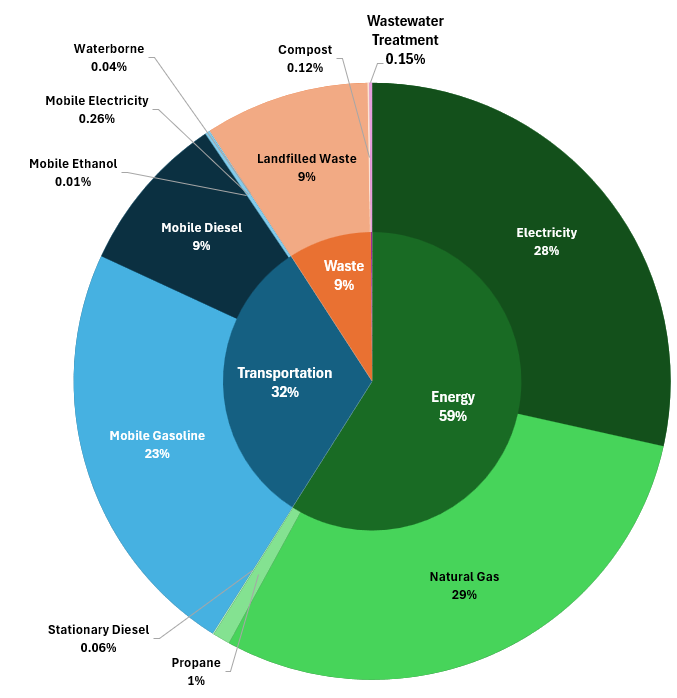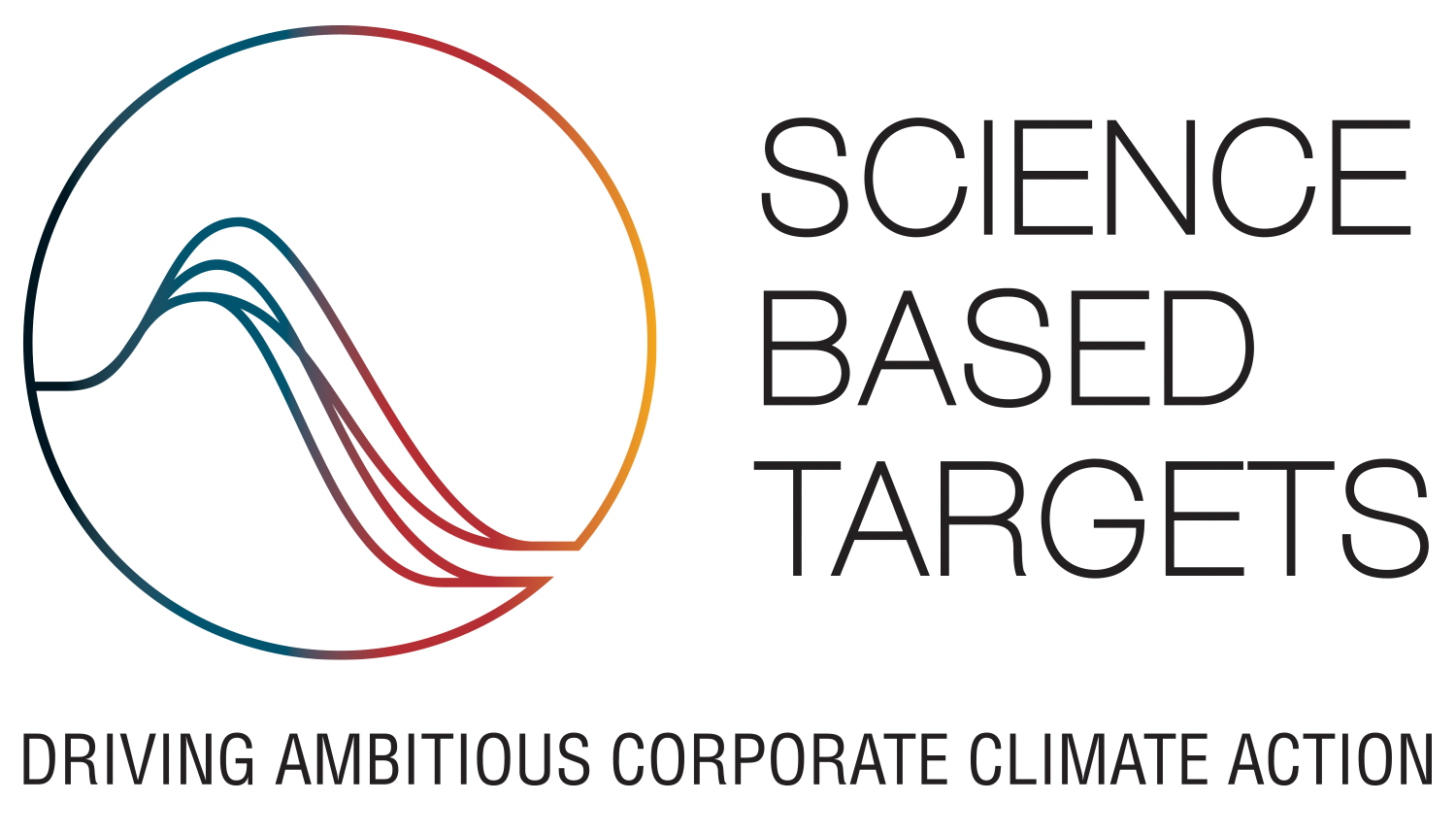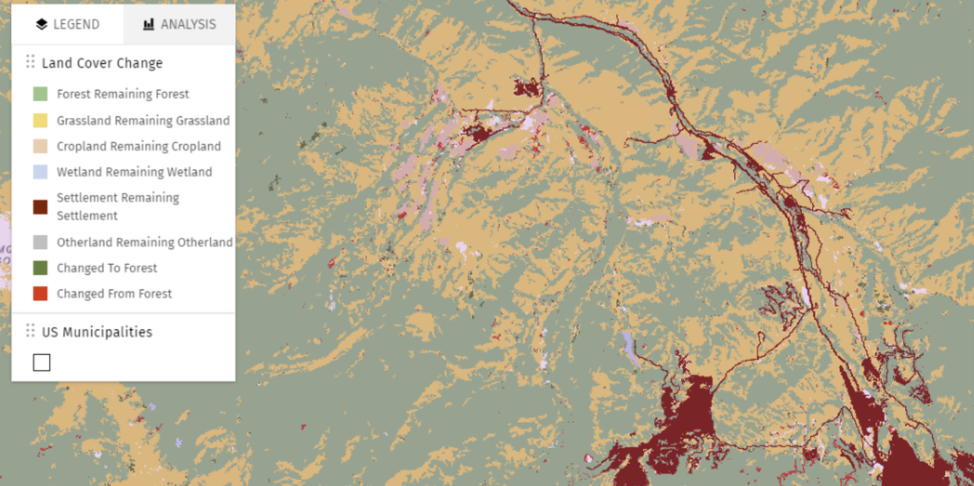
Local Context and data analysis
We support our clients in making decisions through transparent and defensible data.
Local context and data analysis are incredibly powerful if done right and serve as the foundation for community engagement, climate strategy, and policy. Plans and solutions need to be grounded in reality. The Local Context and Data Analysis team helps to paint the picture of who a community is, what is currently happening, and what historical factors might have played a part in the community’s present state.
Greenhouse Gas Accounting
Lotus creates defensible inventories that identify all sectors, sources, and activities responsible for greenhouse gas emissions.
We provide the foundational data for climate action.
Believing firmly that you can't manage what you don't measure, Lotus provides clients with clear, defensible, and actionable data. Our transparent and visually appealing data workbooks do not require service fees and can be customized to each clients branding or needs.
Science Based Targets We help clients set emissions reduction targets that are aligned with the latest science and recommendations from the Intergovernmental Panel on Climate Change. Whether a community or corporation, science based targets reflect the necessary reductions needed to limit global warming to 1.5 degrees Celsius or less.
-
We are well versed in data capture and tracking limitations, and we understand the common barriers to GHG accounting. Through our expertise, we have developed creative, transparent approaches to collecting accurate data.
-
Lotus has helped clients understand not only their emissions but also net removal trends through land use and land use change. Forestry and land use planning are a critical, and sometimes under-recognized, tool for our clients to combat climate change.
-
We’ve helped clients understand and account for carbon emissions released during the full life cycle of construction activity within the construction or built environment sector. Embodied carbon accounting looks at everything from the product selection phase through the end of life phase when that building or project is deconstructed. We’ve helped communities develop policies to promote or incentivize lower carbon sources of raw materials as well as the end of life phase in terms of the requirements for deconstruction.
-
Consumption based emissions inventories look at the behavior, activity and choices of a community in terms of the goods and services that they purchase. Some of the most common examples of consumption based emissions include the Upstream emissions of fossil fuels such as natural gas and gasoline. They also typically include upstream emissions of the food that is consumed within a community as well as Downstream emissions from product use all the way to disposal, recycling, or reuse.
-
We purposefully create inventories that are easy for the client to update. In addition, we help train our clients on how to update inventories through inventory management plans, process improvement plans, and one-on-one training. We’ve helped clients achieve CDP’s A-List communities by preparing their greenhouse gas emissions inventories, and completing their questionnaire. We’ve helped 100% of CDP’s 2024 A-List communities in the State of Colorado prepare their greenhouse gas emissions inventories, see the red stars and counties on the map down below.
Climate Risk and Vulnerability Assessment
As communities experience the impacts of climate change, it is important to understand what risks and vulnerabilities communities face now and may face in the future. Climate vulnerability knowledge can help communities to plan ahead, adapt, and build local resilience to climate change impacts. Our team can help clients map out and visualize local climate risks and vulnerabilities and incorporate adaptation strategies into planning efforts.
Explore the vulnerability mapping tool below that Lotus built for the City of Birmingham
Demographics Map
Housing Map
Wildfire Risk to Communities Map
Local Mapping and Story Mapping
Storymaps
City of Lakewood: Municipal GHG Emissions Storymap
Georgia Tech: Georgia Tech’s Journey
City of Mission, Kansas: Greenhouse Gas Emissions
CO Resiliency Office: Colorado Risks & Vulnerabilities
High Country Conservation Center: Summit County Emissions Update
websites and Content
Routt County Climate Action Plan website
Colorado Resiliency Office website update
Denver Public Schools sustainability website
Testimonial
“Alterra Mountain Company is one company of many unique brands, and Lotus embraced the challenge of working effectively within our organizational structure. For each destination in the Alterra portfolio, the Lotus Team developed custom greenhouse gas inventories and inventory management plans using diverse data inputs. They synthesized complex data sets into manageable workflows that could be easily explained and replicated year over year. Guided by the incredible body of work from Lotus, we have been able to prioritize data-based actions that maintain the unique character of each destination and community, advance climate action policy, and aggressively reduce emissions. We are incredibly grateful to work with the Lotus Team and highly recommend them to other clients, especially those with complex operations.” - Alterra Mountain Company
Where we’ve worked
Click around the map or use the +/- buttons to zoom in and out to see where our clients are located.
We are fully versed in the following protocols and tools
-
Global Protocol for Community-Scale Greenhouse Gas Emission Inventories (GPC) and the Supplemental Guidance for Forests and Trees
U.S. Community Protocol for Accounting and Reporting of Greenhouse Gas Emissions (Community Protocol)
Local Government Operations Protocol (LGOP)
2006 & 2019 Refinement to the IPCC Guidelines for National Greenhouse Gas Inventories
The Climate Registry’s General Reporting Protocol and the Electric Power Sector Protocol
World Resources Institute Greenhouse Gas Protocol Corporate Accounting and Reporting Standard
-
CDP-ICLEI Track
Global Covenant of Mayors for Climate and Energy
American Council for an Energy Efficient Economy: ACEEE
Net Zero Carbon Events
Science Based Targets (public sector and SBTi)
Carbon Disclosure Project (CDP)
-
ICLEI’s ClearPath Tool 1.0 and 2.0
WRI/ICLEI Land Emissions and Removals Navigator (LEARN) & iTREE
EPA State Inventory Tool (SIT)
Embodied Carbon in Construction Calculator (EC3)
Airport Carbon Emissions Reporting Tool (ACERT)














